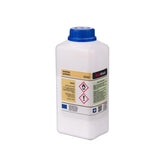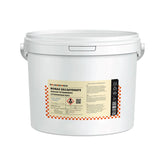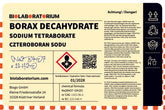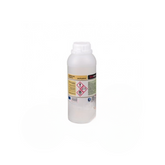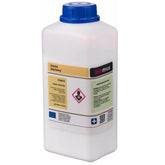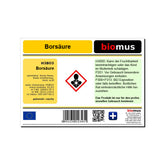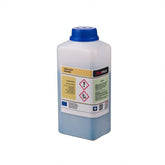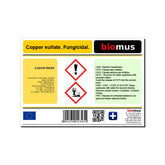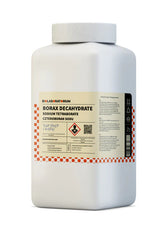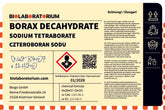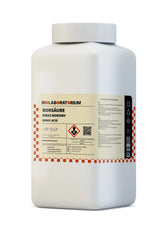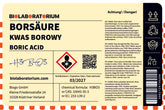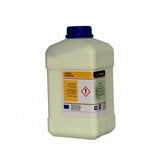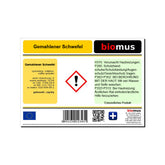Mercury(II) chloride: Versatile applications and safety aspects
Mercury(II) chloride, also known as mercuric chloride or HgCl₂, is an important chemical compound with numerous industrial applications. In this blog post, we will take a closer look at the properties, uses, and safety aspects of Mercury(II) chloride.
Properties of Mercury(II) chloride
Mercury(II) chloride is a white, crystalline powder that is solid at room temperature. It has a molar mass of 271.52 g/mol and a density of 5.44 g/cm³. The melting point is 277 °C, the boiling point is 302 °C. Mercury(II) chloride is soluble in water, ethanol, and other polar solvents.
Chemically speaking, mercury(II) chloride is a covalent compound in which the mercury ion (Hg²⁺) is surrounded by two chloride ions (Cl⁻). This structure gives the compound high stability and reactivity. Mercury(II) chloride is a strong oxidizing agent and can react with many substances.
Industrial Applications of Mercury(II) Chloride
Due to its versatile properties, mercury(II) chloride is used in numerous industrial processes:
Chemical Industry
In the chemical industry, mercury(II) chloride serves as a catalyst in organic syntheses, particularly in halogenation reactions. It is also used in the production of dyes, pigments, and pharmaceuticals.
Electronics Industry
In the electronics industry, mercury(II) chloride is used as a component of dry batteries and mercury switches. It is also used in the production of fluorescent tubes and energy-saving lamps.
Agriculture
In agriculture, mercury(II) chloride is used as a fungicide and seed dressing agent to combat fungal infestation and pests. However, its use is severely restricted or banned in many countries due to environmental pollution.
Medicine
In medicine, mercury(II) chloride was previously used as an antiseptic and disinfectant. Today, it is still used in the production of dental fillings and in some vaccines as a preservative.
Safety Aspects and Environmental Protection
Mercury(II) chloride is a highly toxic substance that can cause serious health damage if ingested into the body. Therefore, strict safety measures must be observed during handling and storage:
- Mercury(II) chloride may only be handled in well-ventilated rooms and using protective equipment (gloves, safety goggles, respiratory protection).
- In case of spills, professional disposal must be carried out, as mercury(II) chloride must not be released into the environment.
- Disposal of mercury(II) chloride-containing waste must be carried out in accordance with applicable environmental regulations.
- The use of mercury(II) chloride in agriculture is severely restricted or banned in many countries due to environmental pollution.
Overall, handling mercury(II) chloride requires great care and caution to avoid health and environmental damage. Only through strict adherence to safety regulations can the risk be minimized.
Conclusion
Mercury(II) chloride is a versatile chemical compound with numerous industrial applications. However, handling this highly toxic substance poses significant dangers to humans and the environment. Therefore, responsible and safe handling of mercury(II) chloride is essential. Only in this way can the benefits of this compound be utilized while simultaneously minimizing risks.
